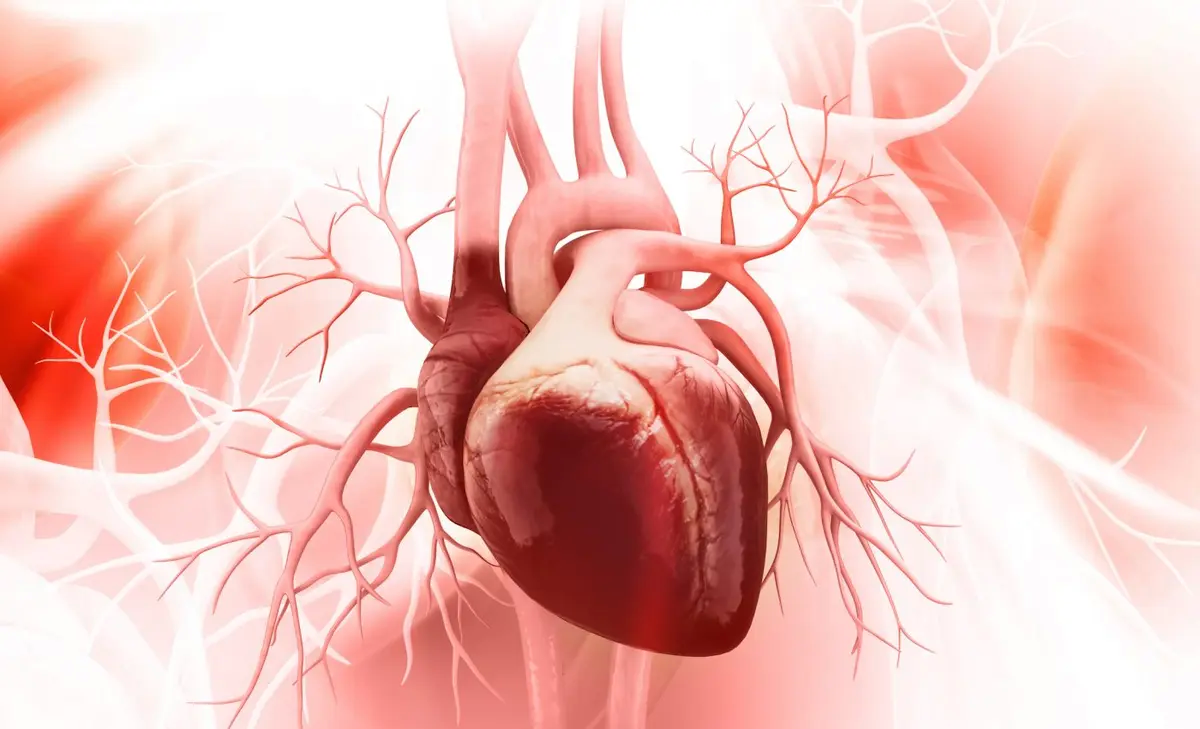New research has found that the human heart has a miniature 'brain', its own nervous system that controls its beating. The discovery opens up new treatment prospects for heart disease.

New research finds that the human heart also has its own "brain" - Photo: earth.com
Until now, scientists believed that the heart was controlled by the autonomic nervous system, which transmits signals from the brain. The cardiac nerve network, located in the surface layers of the heart wall, was considered a simple structure that only relayed signals from the brain.
However, recent research by scientists from the Karolinska Institute (Sweden) and Columbia University (USA) shows that it has a much more complex function.
The "brain" controls the heart rate
Accordingly, they discovered that the heart has its own complex nervous system, which plays a key role in controlling the heartbeat.
"This tiny brain plays an important role in maintaining and controlling the heart rate, similar to how the brain regulates rhythmic functions such as movement and breathing," explains Konstantinos Ampatzis, head of the research team at the Department of Neuroscience, Karolinska Institutet.
The team identified several types of neurons in the heart with different functions, including a small group of neurons with pacemaker properties. The finding challenges current views of how the heart's rhythm is controlled.
“We were amazed at the complexity of the nervous system in the heart,” Ampatzis said. “A better understanding of this system could lead to new insights into heart disease and help develop new treatments for conditions such as arrhythmias.”
The study was conducted in zebrafish, which have similar heart rhythms and cardiovascular functions to humans. The researchers mapped the composition, organization, and function of neurons in the heart using a combination of methods including single-cell RNA sequencing, anatomical studies, and electrophysiological techniques.
Opening up new treatment directions
“We will continue to study how the ‘cardiac brain’ interacts with the brain to regulate heart function under different conditions such as exercise, stress or disease,” said Ampatzis.
“Our goal is to identify new therapeutic targets by looking at how disturbances in the heart's neural network contribute to different heart diseases,” he added.
Before the above discovery, scientists already knew of another part of the human body that has its own "brain" - the digestive system.
This system operates through a complex network called the enteric nervous system (ENS). Because it can function independently of the central nervous system and has specialized functions, the ENS is often referred to as the "second brain" of the human body.
Source: https://tuoitre.vn/phat-hien-tim-nguoi-co-bo-nao-rieng-20241205080152353.htm




































































![[Photo] National Assembly Chairman Tran Thanh Man receives Chairman of Morocco-Vietnam Friendship Association](https://vphoto.vietnam.vn/thumb/402x226/vietnam/resource/IMAGE/2025/7/26/b5fb486562044db9a5e95efb6dc6a263)


































Comment (0)